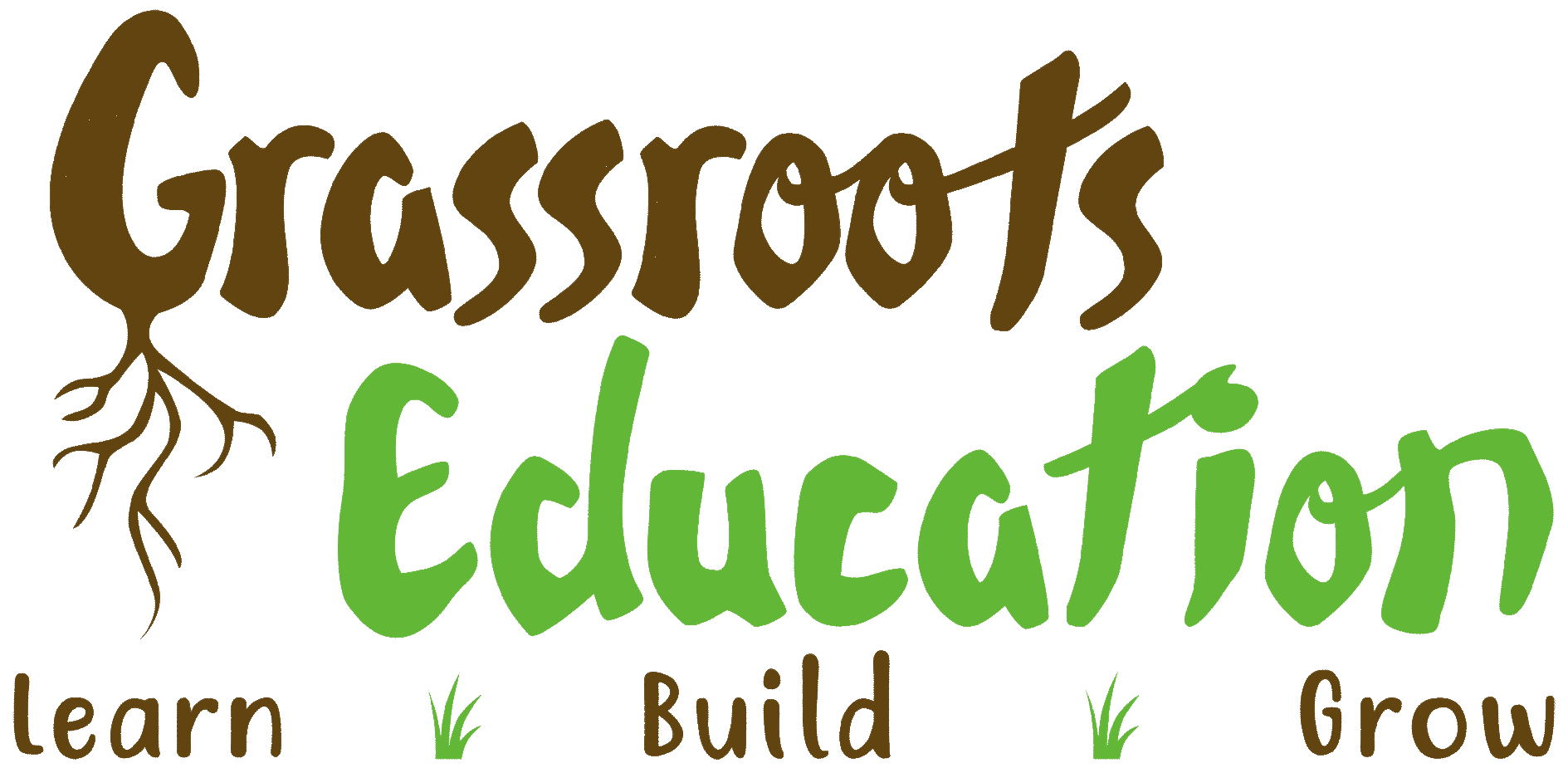
by Marcia Davis-Dawkins | Feb 5, 2019 | Education, Kids, Parents, Teachers, Teens
Loneliness and Mental Wellness

 By Dr. Marcia Davis-Dawkins
By Dr. Marcia Davis-Dawkins
Have you ever felt alone? It is often said that we can be in a crowd, but still feel alone. Some skeptics might even ask, “How is that possible?” But truth be told, it is possible for people to feel left out in a crowd or even in the classroom. Take for instance the student who is new to an area or a school and because he/she has no friends in the environment then, he/she feels as if he/she doesn’t belong. There is also the case where the student has had some emotional issues in the family, now he/she feels isolated because there are hidden pains in the student’s life.
“Why doesn’t anyone want me?
At times, there are students who might have been abandoned by their parents so the students definitely feel unwanted and unloved. Their first thoughts might be, “Why doesn’t anyone want me?” or “Why me?” This type of loneliness might even lead to students inflicting pain on themselves or even lashing out at their fellow classmates. They might be verbally abusive to those around them in an attempt to mask their lonely feelings. Still another example, students might feel alone when going through puberty and are trying to figure out themselves, as sometimes is the case for students who are in the middle school (ages 11-14).
For adults, being lonely or being alone can be a time of reflection where one can take stock of where they are coming from, where they are now and where they plan on being for the future. Plus, for those who are religious, it can be a time of meditation with God – He usually reveals Himself to the meditator and gives plenty of understanding to life. Reflection can lead to understanding of oneself, so that there is no room for depression or anxiety. But, like most things, there should be balance where you should not dwell too much on the negatives in the past but learn from the past and use with moderation. It might be a time to ask not why is this happening to me , but rather, what is this teaching me?
In the long run, what we don’t want is to mask our feelings or hide our identity because of being hurt. Find someone you can confine in or use alone time to read a book or write your thoughts so you are not consumed with them. It is important to be yourself and not compare yourself with another person, thinking you are not smart enough, you are not beautiful/handsome enough, not rich enough, not outgoing enough. There are people who feel like they are so insufficient and aren’t satisfied with who they are.
Loneliness for Adults
 Also for adults, loneliness can come because of a lost spouse or loved one and things seems like your world in about to end because the person is grieving. For some, it can be a sense of confusion. Some might question themselves, even question God, or “Why did this happen?” “How will I survive without my spouse?” “Where do I stand?” “What will I do in the weeks, months, years to come without my spouse?” These, of course, are legitimate inquiries without immediate answers, but the interesting thing is that there is usually help, whether through family/friends support or from counselors. Whatever the situation, fear of being alone or the feeling that we will never make it – there is always hope.
Also for adults, loneliness can come because of a lost spouse or loved one and things seems like your world in about to end because the person is grieving. For some, it can be a sense of confusion. Some might question themselves, even question God, or “Why did this happen?” “How will I survive without my spouse?” “Where do I stand?” “What will I do in the weeks, months, years to come without my spouse?” These, of course, are legitimate inquiries without immediate answers, but the interesting thing is that there is usually help, whether through family/friends support or from counselors. Whatever the situation, fear of being alone or the feeling that we will never make it – there is always hope.
 We might be lonely simply because people have disappointed us so much that we just want to be by ourselves and enjoy our own company. At times, we go through a period of loneliness because this time is needed for reflecting where we can assess ourselves and set new goals. Frankly speaking, we shouldn’t fight this aloneness, but embrace it and develop something that you might never have. It could be a time where we can get to know ourselves. At whatever cost and at whatever stage in life we are, loneliness is real and it affects our psyche. Whether we want to admit it or not, it can play a big part of our lives (young or old). It is no wonder why what Maya Angelou said is so poignant, “Music was my refuge. I could crawl into the space between the notes and curl my back to loneliness.” What is vital to remember and remind our struggling students is that if you’ve ever had feelings of loneliness, you are far from alone. Loneliness is one of the most common, if unpleasant, emotions that millions of people experience. For some it is passing, for others, it is recurring. But for all of us, it is a part of the human experience.
We might be lonely simply because people have disappointed us so much that we just want to be by ourselves and enjoy our own company. At times, we go through a period of loneliness because this time is needed for reflecting where we can assess ourselves and set new goals. Frankly speaking, we shouldn’t fight this aloneness, but embrace it and develop something that you might never have. It could be a time where we can get to know ourselves. At whatever cost and at whatever stage in life we are, loneliness is real and it affects our psyche. Whether we want to admit it or not, it can play a big part of our lives (young or old). It is no wonder why what Maya Angelou said is so poignant, “Music was my refuge. I could crawl into the space between the notes and curl my back to loneliness.” What is vital to remember and remind our struggling students is that if you’ve ever had feelings of loneliness, you are far from alone. Loneliness is one of the most common, if unpleasant, emotions that millions of people experience. For some it is passing, for others, it is recurring. But for all of us, it is a part of the human experience.
Emotions/Feeling
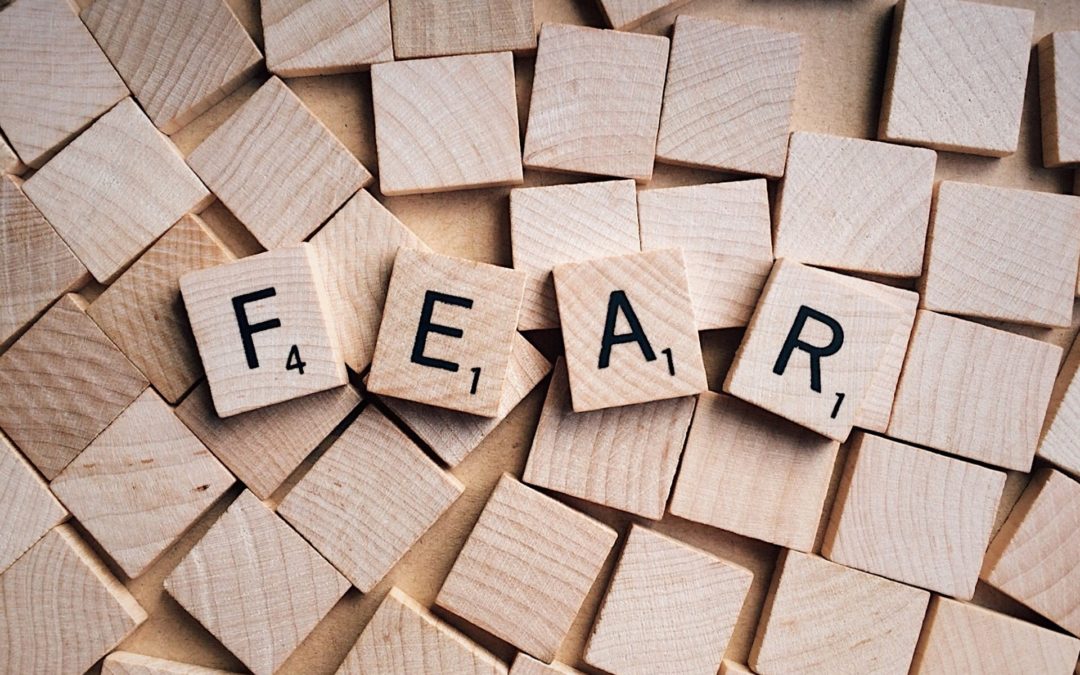
by Marcia Davis-Dawkins | Oct 1, 2018 | Education, Kids, Parents, Teachers, Teens

By Dr. Marcia Davis-Dawkins
In his First Inaugural Address, Franklin D. Roosevelt (FDR) said; “ The only thing we have to fear is fear itself.” I found myself thinking about that quote recently when I was enlisted to present professional development to a group of educators like myself. What I inferred from FDR was that if we fear things, it will simply make matters worse. In effect, it can damage our self-confidence and wane our ability to move forward. The fears we don’t face become our limits. Understanding that gave me the courage to work through my trepidation with favorable results.
As humans we fear many things,
so much so that there are several characteristics or forms of fear known as phobias. You name it and there is a phobia for it. Why do we have fear? In my case, was I afraid that my audience would berate me, or that I would falter in the delivery of the material? Why do you fear and what do you fear? The high school I attended in Jamaica had several huge lignum vitae trees on the school property. These trees provided shade for the girls, as well as a place to sit when we wanted to eat lunch outdoors. (Seats with tables were made around the trees). As wonderful as the trees were, during the school year they were filled with caterpillars – they were everywhere and infested our comfortable haven while we were trying to enjoy lunch or waited to switch classes. The fear was the caterpillars!!! We knew that they would eventually be beautiful butterflies, and our fear was irrational, but that creepy, crawly stage horrified us.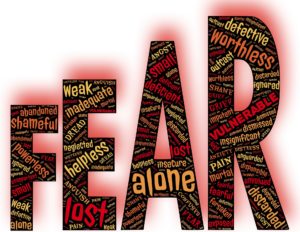
As educators we fear getting a bad evaluation, having a class we are unable to manage, missing deadlines, performing poorly on a test, among many other things. But I do want to point out that there are times when fear is an asset and becomes a strength — simply because we didn’t realize that we were capable of doing certain things.
Since we are all humans, we know that our students will have fears as well – fear of the teacher, fear of learning, fear of being bullied, fear of a new environment and even fear of the unknown. It is our job and one of the many hats that we wear to help them conquer their angst and help them to believe in themselves. Some of those same students might even have their teachers to thank because the teachers helped them to overcome their fears. I know that because I am one of those teachers whose former teacher helped me to conquer my fear of being a teacher! Let us encourage our students, fellow educators and ourselves since encouragement brings oxygen or nourishment to the soul. Remember that FEAR can translate to Forget Everything And Run or Face Everything And Rise. The choice is yours.
Rise Above
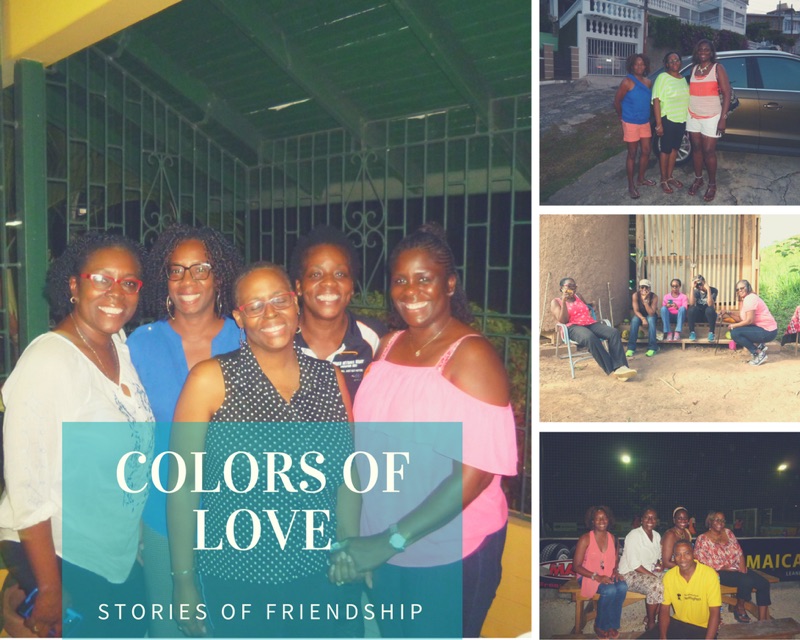
by Marcia Davis-Dawkins | Mar 22, 2018 | Education, Kids, Parents, Teachers, Teens
Perpetually Grateful

By Dr. Marcia Davis-Dawkins
Showing appreciation…
It has always confounded me that some people find it difficult to say “thank you” when they are given something. Showing appreciation just seems like the normal thing to do, but for some people it’s really arduous. I have had the opportunity recently to examine that for which I am grateful– things that I take for granted. What might seem trivial to some, but not to others – being able to breathe, see, talk, walk, have a place to live or even have a job. I believe that we should consider everything and every circumstance as a blessing, and therefore be grateful. We should not lose sight of gratefulness. I think it takes much effort to be thankful, but with constant practice it can become a habit.
How do I see being thankful? I believe that as I journey through life and its processes, I accept that everything I do and experience is for a reason and there is a lesson to be learned. Accordingly, I have begun looking for the lesson to be learned. It also means stepping back and reflecting on the experiences so I can elicit those lessons and then give thanks. I am reminded of a song that we. sang in the choir, by Brooklyn Tabernacle Choir, that says “In Everything Give Him Thanks” and it further instructs to “give thanks in the good times, in the bad times, let’s do the same.” It means that even when my childhood friend of many years is critically ill, and I am miles away from her and feeling helpless, I should not be paralyzed with sadness and remain idle. I can still be grateful that I know her, have shared amazing times with her, learned countless things from her, spent many quality times with her, shared laughters, secrets and even tears. I am grateful for the friendship we have and I know that we have grown even closer in the last six months since her cancer diagnosis. In fact, we have a group of five ‘friends  forever’ with whom we have a special bond and we celebrate our friendship and compassion for each other. I am thankful for the values we were taught by our parents to pray together, sing together, share our family difficulties together and tried to work out solutions. This empathy that we share is plenty for which to be thankful. We are always there for each other, in good times and in bad.One of the things that I hear is that even though our friend is sick, she always utter how grateful she is. A member of our team of the “friends forever” is always at the hospital helping our sick friend. We are giving thanks for her dedication and love. This love sincerely is from the love of God. Hence, we can pass on these special attributes to our children, students, and co-workers, reminding them daily that in the end, it is not what we possess, but what we shared, that is significant.
forever’ with whom we have a special bond and we celebrate our friendship and compassion for each other. I am thankful for the values we were taught by our parents to pray together, sing together, share our family difficulties together and tried to work out solutions. This empathy that we share is plenty for which to be thankful. We are always there for each other, in good times and in bad.One of the things that I hear is that even though our friend is sick, she always utter how grateful she is. A member of our team of the “friends forever” is always at the hospital helping our sick friend. We are giving thanks for her dedication and love. This love sincerely is from the love of God. Hence, we can pass on these special attributes to our children, students, and co-workers, reminding them daily that in the end, it is not what we possess, but what we shared, that is significant.
As humans we tend to be complainers, but we need to find something to be more appreciative about in EVERYTHING!!!! I am reminded of the old adage that some people see the glass half full, while others see the glass half empty.
 It is time to be enlightened and simply be grateful to have a glass.
It is time to be enlightened and simply be grateful to have a glass.
Being an educator, we often feel overwhelmed with issues we face with our students whom we deem “unteachable” due to learning disabilities or because of behavior problems, but at times we can learn so much from the experiences we encounter. We are so caught up that we forget to stop and to be grateful for the challenges or for the fact that we may be the one to help make a difference to that student. The experiences usually make us stronger.
Being grateful has started to give me a different viewpoint on life and my journey of being renewed and empowered. Join me on this journey of making our thanksgiving perpetual!
The Power of Words

by Marcia Davis-Dawkins | Mar 14, 2018 | Education, Kids, Parents, Teachers, Teens
Change Our Positions!
 By Dr. Marcia Davis-Dawkins
By Dr. Marcia Davis-Dawkins
Socrates once said, “The secret of change is to focus all your energy, not on fighting the old, but on building the new.” Change can be difficult and I am sure most people would agree that they have had regrets, things that they could redo if given the opportunity. There are others who would say, “What is the point of starting over, I am not good at this so why bother!” I beg to differ. Change means reinventing one’s self and while difficult, is often necessary and ultimately rewarding. Lives may need to be modified after a failed marriage, a failed relationship, losing a loved one through death, changing a career path, losing, or starting a new job. In essence, change is usually a result of a heart being broken or a mind being opened. Some might say, why change when I am so old? In response, I am reminded of C. S. Lewis’ quote “You are never too old to set another goal or to dream a new dream.” 
Change is new process in our lives.
Why might adjustment be necessary? I learned to drive using a stick shift and it was very intense. I clearly remember the driving instructor saying that I should listen to the engine as this was an indicator that the gear needed to be changed after it reached a certain rev count. Sometimes in our personal lives, we need to change because the rev count is different. We need to change the way we think. We want to be transformed by the renewing of our minds. Many people use a new season to take inventory of their lives and try to change situations. For me the season is springtime, when there is a new burst of energy, new growth, new buds, freshness, birds chirping, simply newness. Springtime is especially meaningful for me since it’s when I celebrate my birthday. This year, I want to change from inside out. I will become more beautiful and set myself free, free to soar to new heights. Transition and difference describe the process that occurs within each of us when change happens. I firmly believe that it’s all about the process. What goes on within us as we go through the changes include the pats on the back, having “aha” moments, the getting to know self, and the skepticisms from people. But through it all I know that one of the things that makes a difference in the change process is to avoid and ignore people with negative vibes and surround myself/ourselves with positive people. Change means immersing yourself with people who will encourage and pat us on back. It also means doing more positive self-talk, setting positive affirmations and pushing in the direction where you are heading. This enables us to refocus, while celebrating the little steps made and shifting our attention on the goals set. Just because we started down one path does not mean that we need to finish on the same path. We have the power to say this is not the final destination, that this is not how the story ends. That type of thinking gives us validity to shift directions and allows for metamorphosis.
How do we relate to change in education?

If we have been teaching for a while, we realize that things are always changing – there is change in the curriculum, change in state tests, change in grade level that is taught, change in leadership, and redistricting. How do we adjust to the various changes? Generally, we adopt by changing our mindset and think positively and press towards the goals. We anticipate and adjust the process of transition and avoid resisting the change so that life can be productive. Let us let go of the past – guilt, anger love, loss, or betrayal and fight to move on –MAKE the CHANGE!
It’s Never Too Late To Start Over
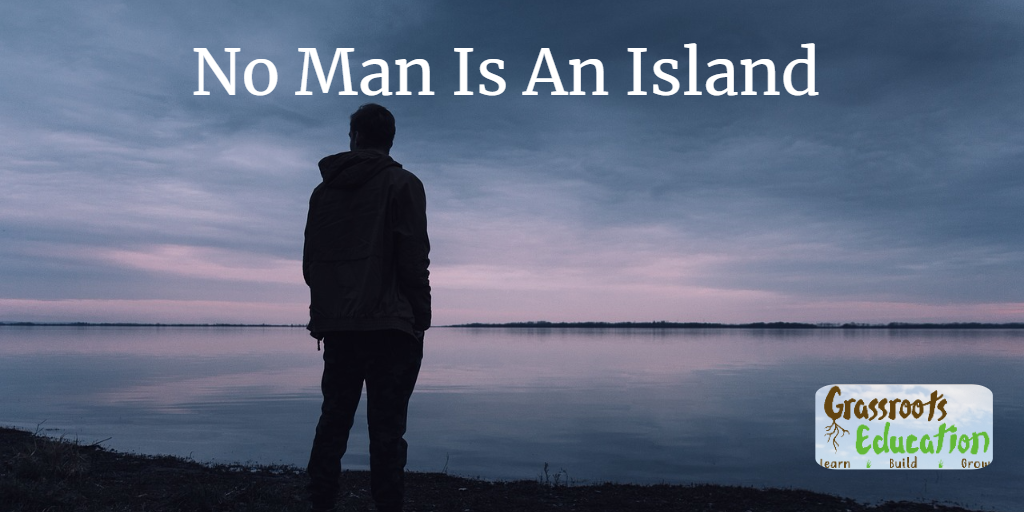
by Marcia Davis-Dawkins | Mar 6, 2018 | Education, Parents, Teachers, Teens
No Man Is An Island
by Dr. Marcia Davis-Dawkins
Over 400 years ago, John Donne penned the poem “No Man Is An Island” and several others, including Joan Baez and Dennis Brown, have followed up with songs of a similar title. In his poem, Dunne compared suffering to gold, arguing that we can never have enough of our neighbors’ pain: “No man hath affliction enough that is not matured and ripened by it.” In other words, he feels that no one suffers alone, and being aware of another’s pain only makes us stronger and more able to live. In a world where it seems as if people are selfish and think only of themselves, it is vitally important to remember:
Togetherness and Collaboration
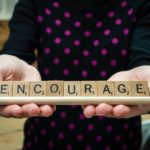 The words emphasize that we should encourage unity, togetherness and collaboration. We need each other, even when we think we don’t. People can encourage us daily, especially when we surround ourselves with positive ones.
The words emphasize that we should encourage unity, togetherness and collaboration. We need each other, even when we think we don’t. People can encourage us daily, especially when we surround ourselves with positive ones.
Many of us might think that we can do better by ourselves, and we think we don’t need families, friends or co-workers. The truth is, however, that we do! No one is truly self-sufficient. Humans cannot get along with their lives alone and succeed. We are all dependent on others and can’t thrive by being alone. We were created to be encouraging to each and this is supported in the Bible: Romans 12:4-5, ESV For as in one body we have many members, and the members do not all have the same function, so we, though many, are one body in Christ, and individually members one of another. This verse is emphasizing that because we are not good at everything and no matter how young, old, our racial ethnicity, our economic status, or our residence – we need each other.
As educators, we are called to reach ALL students
As educators, we are called to reach ALL students – which means that we have to collaborate and encourage each other and help each other to succeed and when we do so, our students reap the benefits. Teaching can be rewarding, but also extremely demanding and stressful. Fostering camaraderie crea tes a positive culture where staff is enthusiastic, positive and supportive of each other and work together to accomplish the goals of the district. We can share ideas, or as often referred to ,“borrow ideas” from each other. No one is perfect, so we should share seeds of love gently. See the best in everyone – co-workers and children as well as students. We should be committed to our career, co-workers, students and do the best job that we can, regardless of what others may feel or think. Again, the Bible makes reference of togetherness in Romans 12:16, NLT Live in harmony with each other. Don’t be too proud to enjoy the company of ordinary people. And don’t think you know it all!
tes a positive culture where staff is enthusiastic, positive and supportive of each other and work together to accomplish the goals of the district. We can share ideas, or as often referred to ,“borrow ideas” from each other. No one is perfect, so we should share seeds of love gently. See the best in everyone – co-workers and children as well as students. We should be committed to our career, co-workers, students and do the best job that we can, regardless of what others may feel or think. Again, the Bible makes reference of togetherness in Romans 12:16, NLT Live in harmony with each other. Don’t be too proud to enjoy the company of ordinary people. And don’t think you know it all!
Below are the lyrics of John Donne, Joan Baez and Dennis Brown whose poem and songs emphasize that we all need each other.
No Man Is An Island – John Donne
No man is an island entire of itself;
every man is a piece of the continent, a part of the main;
if a clod be washed away by the sea, Europe is the less, as well as if a promontory were, as well as any manner of thy friends or of thine own were;
any man’s death diminishes me, because I am involved in mankind. And therefore never send to know for whom the bell tolls;
it tolls for thee.
No Man Is an Island
Joan Baez
No man is an island,
No man stands alone,
Each man’s joy is joy to me,
Each man’s grief is my own.
We need one another,
So I will defend,
Each man as my brother,
Each man as my friend.
I saw the people gather,
I heard the music start,
The song that they were singing,
Is ringing in my heart.
No man is an island,
Way out in the blue,
We all look to the one above,
For our strength to renew.
When I help my brother,
Then I know that I,
Plant the seed of friendship,
That will never die.
Songwriters: Peter Schickele
No Man Is an Island lyrics © Universal Music Publishing Group
No Man Is An Island by Dennis Brown
No man is an island
No man stands alone
Each man has a brother
And remember
Each man’s dream has a road
Now we need one another ooh yes
And we all try to be friends
Each man has a brother
And a each man has a friend
You can live in this world all by yourself
In this world all by yourself
No nonoooo you can’t make it alone
And just as sure as you try to make it by yourself
You gonna wake up and find you gonna need somebody else
No man is an island
No man stands alone
Each man has a brother
And remember
Each man’s dream has a road
Friendship

by Marcia Davis-Dawkins | Feb 8, 2018 | Education, Kids, Parents, Teachers, Teens
Ride Out the Storm

By Dr. Marcia Davis-Dawkins
Let no one keep you from your journey. – Mark Nepo
Life’s journey can be very interesting and we simply have to make the best of each day. While on our journey, we have great days and not so great days. We encounter sunny days, windy, snowy and even stormy days. The stormy days are the most challenging, especially if the storm comes at night and, worse yet, if we are alone. It is then that time seems to stand still and last forever. What we must remember, however, is that often the darkest times can bring us to the brightest  places, and that our most painful struggles can grant us the most necessary growth. What seems like a curse at that moment can actually be a blessing, and what seems like the end of the road is actually just the discovery that we are meant to travel down a different path. There is always hope and no matter how powerless we may seem, we can’t give up. We have to resolve to keep going, no matter how scary, even when it seems as if all our strength is gone. We have to keep picking ourselves up and move forward through whatever we are battling at the moment, even if it’s only inches at a time, one foot in front of the other, because we never know what is around the bend.
places, and that our most painful struggles can grant us the most necessary growth. What seems like a curse at that moment can actually be a blessing, and what seems like the end of the road is actually just the discovery that we are meant to travel down a different path. There is always hope and no matter how powerless we may seem, we can’t give up. We have to resolve to keep going, no matter how scary, even when it seems as if all our strength is gone. We have to keep picking ourselves up and move forward through whatever we are battling at the moment, even if it’s only inches at a time, one foot in front of the other, because we never know what is around the bend.
Faith Isn’t a Feeling
As educators we have days when we feel as if we are not reaching the students, even when we try everything possible to motivate them. We have to persevere and hope that somehow we will meet the needs of at least one student. We can make a difference by just pressing onward. Each school year brings with it new challenges, new students, and new experiences. But it also brings renewed hope. I believe that when we go through our seasons of doubts, we can use the experiences to rethink and that each setback teaches wisdom. That wisdom is not always easy to come by. We will get frustrated, shed some tears and doubt if we should even continue trying. It’s fine to break down, but we must do it with the understanding that we will come out the other end a little smarter, a little stronger, and a whole lot more prepared. A bad situation is only permanent if we THINK it is. If we think we’ve reached our limits, then we have. If we think things will never get better, then they won’t. It’s imperative that we change our thinking.  We must painstakingly examine everything that’s holding us back, each and every obstacle, and realize that each of these limitations is just temporary. We are the ones capable of bringing about change and we can keep going long after we think we can. That determination and conviction coupled with faith will lead the way. We can be encouraged by Dave Willis, who said, “Faith isn’t a feeling. It’s a choice to trust God when the road ahead seems uncertain.”
We must painstakingly examine everything that’s holding us back, each and every obstacle, and realize that each of these limitations is just temporary. We are the ones capable of bringing about change and we can keep going long after we think we can. That determination and conviction coupled with faith will lead the way. We can be encouraged by Dave Willis, who said, “Faith isn’t a feeling. It’s a choice to trust God when the road ahead seems uncertain.”
Determination and Perseverance
https://en.wikipedia.org/wiki/Mark_Nepo


 By Dr. Marcia Davis-Dawkins
By Dr. Marcia Davis-Dawkins Also for adults, loneliness can come because of a lost spouse or loved one and things seems like your world in about to end because the person is grieving. For some, it can be a sense of confusion. Some might question themselves, even question God, or “Why did this happen?” “How will I survive without my spouse?” “Where do I stand?” “What will I do in the weeks, months, years to come without my spouse?” These, of course, are legitimate inquiries without immediate answers, but the interesting thing is that there is usually help, whether through family/friends support or from counselors. Whatever the situation, fear of being alone or the feeling that we will never make it – there is always hope.
Also for adults, loneliness can come because of a lost spouse or loved one and things seems like your world in about to end because the person is grieving. For some, it can be a sense of confusion. Some might question themselves, even question God, or “Why did this happen?” “How will I survive without my spouse?” “Where do I stand?” “What will I do in the weeks, months, years to come without my spouse?” These, of course, are legitimate inquiries without immediate answers, but the interesting thing is that there is usually help, whether through family/friends support or from counselors. Whatever the situation, fear of being alone or the feeling that we will never make it – there is always hope. We might be lonely simply because people have disappointed us so much that we just want to be by ourselves and enjoy our own company. At times, we go through a period of loneliness because this time is needed for reflecting where we can assess ourselves and set new goals. Frankly speaking, we shouldn’t fight this aloneness, but embrace it and develop something that you might never have. It could be a time where we can get to know ourselves. At whatever cost and at whatever stage in life we are, loneliness is real and it affects our psyche. Whether we want to admit it or not, it can play a big part of our lives (young or old). It is no wonder why what Maya Angelou said is so poignant, “Music was my refuge. I could crawl into the space between the notes and curl my back to loneliness.” What is vital to remember and remind our struggling students is that if you’ve ever had feelings of loneliness, you are far from alone. Loneliness is one of the most common, if unpleasant, emotions that millions of people experience. For some it is passing, for others, it is recurring. But for all of us, it is a part of the human experience.
We might be lonely simply because people have disappointed us so much that we just want to be by ourselves and enjoy our own company. At times, we go through a period of loneliness because this time is needed for reflecting where we can assess ourselves and set new goals. Frankly speaking, we shouldn’t fight this aloneness, but embrace it and develop something that you might never have. It could be a time where we can get to know ourselves. At whatever cost and at whatever stage in life we are, loneliness is real and it affects our psyche. Whether we want to admit it or not, it can play a big part of our lives (young or old). It is no wonder why what Maya Angelou said is so poignant, “Music was my refuge. I could crawl into the space between the notes and curl my back to loneliness.” What is vital to remember and remind our struggling students is that if you’ve ever had feelings of loneliness, you are far from alone. Loneliness is one of the most common, if unpleasant, emotions that millions of people experience. For some it is passing, for others, it is recurring. But for all of us, it is a part of the human experience.